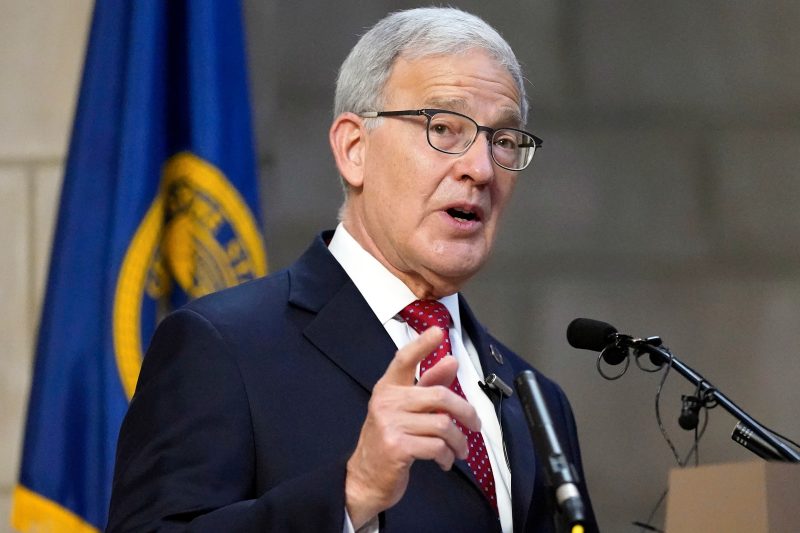Nebraska residents who were convicted of felonies and have finished their sentences can vote in the November election, the state’s Supreme Court ruled Wednesday, potentially opening the door for thousands of Nebraskans to cast their ballot.
The ruling could have implications for the presidential race as Nebraska, which is solidly red, is one of two states that awards some of its electoral votes by congressional district.
Wednesday’s ruling comes after Secretary of State Bob Evnen (R) in July directed county officials to stop registering people to vote who had felony convictions and had not been pardoned by the Nebraska Board of Pardons. Evnen and two of his Republican colleagues, Nebraska Gov. Jim Pillen and Attorney General Mike Hilgers, make up the board.
Shortly after Evnen gave the directive, the American Civil Liberties Union and others sued, saying that Evnen’s decision “effectively orders county election officials to disregard state law.” Nebraska in April passed L.B. 20, a bill restoring voting rights for felons upon completion of their sentence, including probation and parole time. The state’s Supreme Court on Wednesday ordered Evnen to comply with L.B. 20 and “remove any disqualification on registration he has imposed that is not contained within” the law.
Nebraska’s split electoral vote system offers Vice President Kamala Harris a shot at securing one of the state’s five electoral votes. But former president Donald Trump and his GOP allies in the state, including Pillen, in recent weeks have undertaken a last-minute push for the state to move to a winner-take-all system.
In recent years, multiple states have moved to allow people with felony convictions to vote. According to the ACLU, 15 states allow people with felony convictions to vote only upon completion of their sentence and 10 others allow some felons to vote, while restricting others based on the nature of their offense or whether they have been pardoned. In most of the other states, people who are in prison cannot vote, but everyone else can. Two states, Maine and Vermont, allow everyone to vote.
Jeremy Jonak, a plaintiff in the lawsuit to enforce L.B. 20 in Nebraska, described the ruling as a “weight off my shoulders.” Jonak, a resident of Hall County, Nebraska, had completed the sentence for his felony conviction and wanted to register to vote, according to the ACLU’s lawsuit.
“Over the years, so many of us have earned a second chance,” Jonak said in a statement Wednesday. “We live in every part of the state, and the truth is most of us are just trying to live our lives and leave the past behind us. Thanks to this decision, we get to have a say as part of our communities.”
Evnen said in a statement Wednesday that his office would be “following the requirements of the decision,” adding that it was “working to ensure that those who were made eligible to register to vote under LB 20 may now do so.”
Nebraska’s deadline for online voter registration is Friday, and the state allows in person registrations until Oct. 25.
